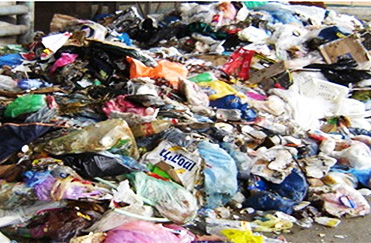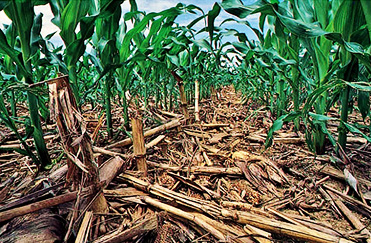Solid waste is defined as any discarded solid fractions, generated from domestic units, trade centres, commercial establishments. Industries and agriculture, institutions, public services and mining activities. Characteristic of waste vary based on place of generation and the season in which it is generated. The Ministry of Urban Development has classified solid waste in fourteen categories based on the source, origin and type of waste i.e. domestic waste, municipal waste, commercial waste, institutional waste, garbage, rubbish, ashes, bulky waste, street sweepings, dead animals, construction and demolition waste, industrial waste, hazardous waste and sewage waste. Municipal Solid Waste (MSW) includes commercial and residential wastes generated in a municipal and notified area in either solid and semi-solid form excluding industrial hazardous wastes but including treated bio-medical wastes. Solid Waste Management system includes collection, segregation, transportation, processing and disposal of waste.[read more=”Read more” less=”Read less”] As per the Ministry of Forest, Environment and Climate Change 62 million tonnes of waste is generated annually in the country at present, out of which 5.6 million tonnes is plastic waste, 0.17 million tonnes is biomedical waste, hazardous waste generation is 7.90 million tonnes per annum and 15 lakh tonne is e-waste. Per capita waste generation in Indian cities ranges from 200 grams to 600 grams per day. At present 43 million TPA is collected, 11.9 million is treated and 31 million is dumped in landfill sites, which means that only about 75-80% of the municipal waste gets collected and only 22-28 % of this waste is processed and treated. “Waste generation will increase from 62 million tonnes to about 165 million tonnes in 2030. Recently Government of India has revised the Solid Waste Management rule after 16 years (previous rule MSW, 2000) and launched Swach Bharat Abhiyan to tackle the problem of waste disposal and which require huge manpower to execute this program. Hence capacity building is very much required in this sector.

[/read]
Due to increase in population, there is an intensive increase in volume and type of waste agricultural biomass or Agri residues as well as livestock production which becoming a serious problem as rotten agricultural waste and animal waste (manure) emits methane and leachate, and open burning of these waste by farmer increase the level of pollution in the atmosphere. These improper managements of agricultural waste and manure will lead to the climate change and soil and water contamination and cause air pollution. In order to manage agricultural and manure waste, proper solid waste management is required which not only solve the problem of waste disposal but also convert waste into energy/fuel as well as bio-fertilizer. Hence it is important to create awareness and to build capacity to promote solid waste management based on 3Rs i.e. Reduce, Reuse and Recycle.Technologies for processing & treatment of solid waste are Composting, Anaerobic Digestion/Bio-methanation, Incineration, Gasification/pyrolysis, Plasma Technologies, Production of Drop in Fuels (DIF) etc.
